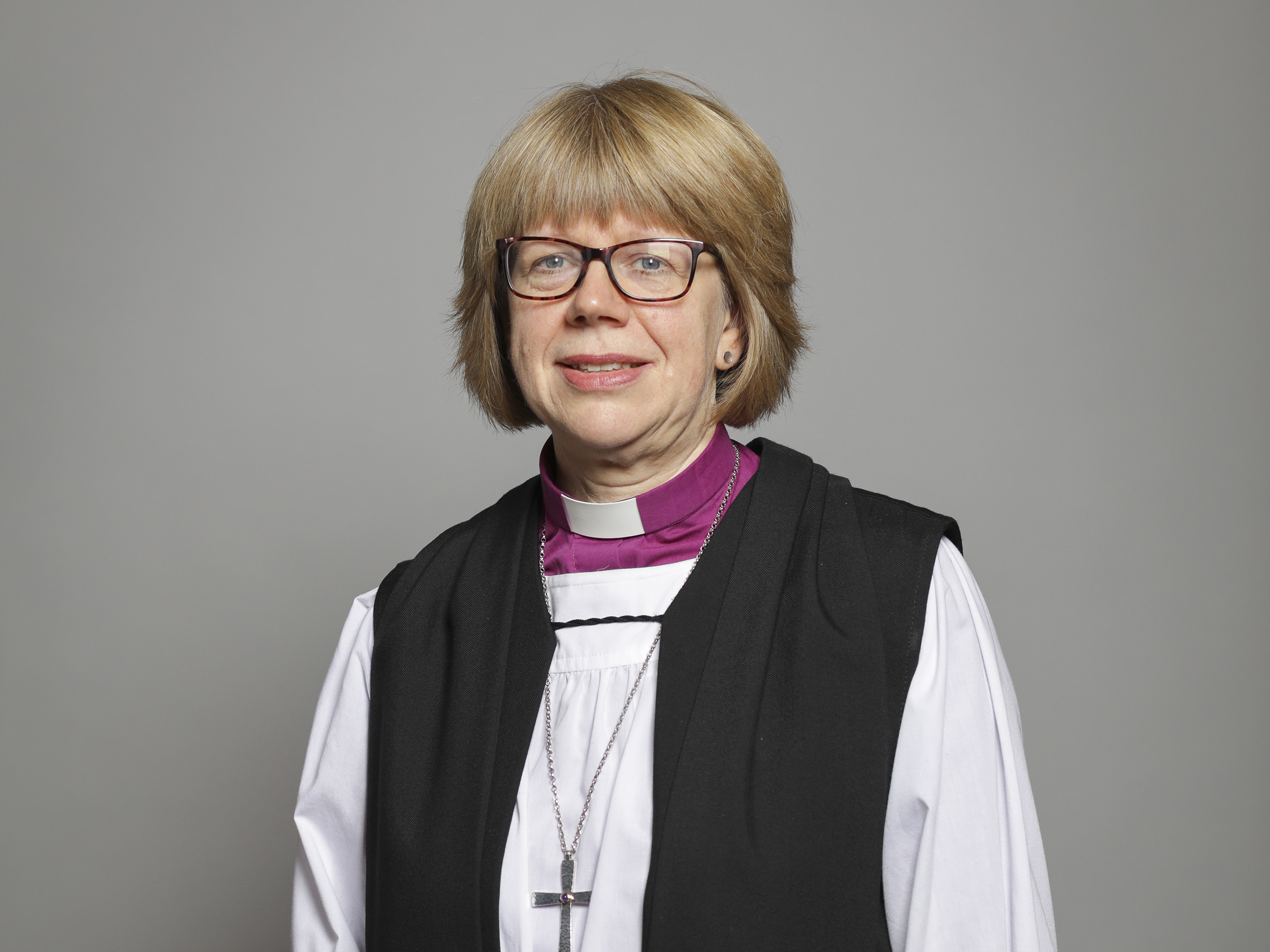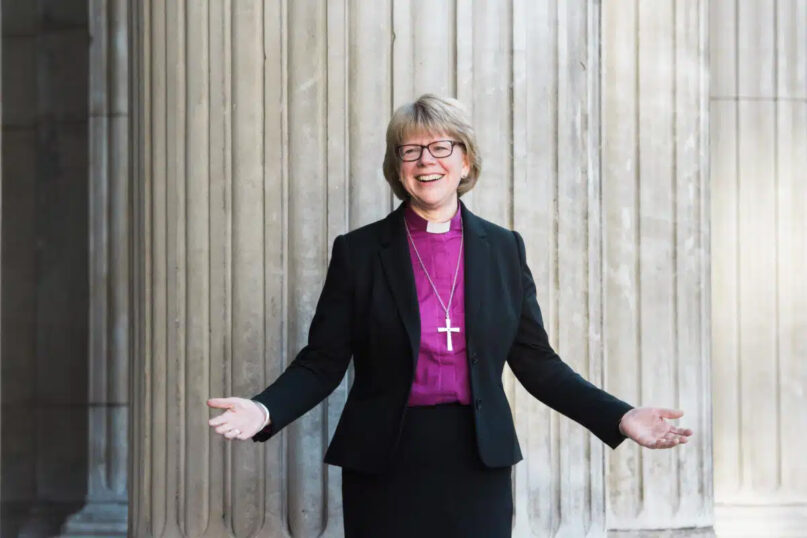
LONDON (RNS) — After 30 minutes of high-energy Christian ballads, Holy Trinity Brompton’s lead pastor, Vicar Archie Coates, ascended the stage on Sunday (Oct. 5) before a mostly young and multicultural crowd of worshippers. He began by offering words of praise.
“I want to start on behalf of HTB, by giving our warmest congratulations to our very own bishop of London, who has been named as the next archbishop of Canterbury — Dame Sarah Mullally,” Coates said. “She has been such a supporter and partner with us for seven years as bishop in London. I have to think that she’s going to be continuing that on a national and a global level. Congratulations, Sarah Mullally!”
The expression of support for the first woman elected to lead the Church of England and the global Anglican Communion was significant. Last week, when King Charles made known he approved Mullally’s nomination to replace Justin Welby, who resigned after allegations that he failed to report child abuse, there was much handwringing over whether conservative churches would accept a woman.
That now seems less of an issue.
For HTB, a large church with a network of 66 congregations that uphold a traditional view that women should not hold authority over men, Mullally does not appear to be a lightning rod.

Vicar Archie Coates speaks at Holy Trinity Brompton in London on Oct. 5, 2025. (RNS photo/Yonat Shimron)
RELATED: In historic appointment, Sarah Mullally will be the first female archbishop of Canterbury
“I think for a lot of them, it is a bit of a relief that it is Sarah,” said the Rev. Gerry Lynch, rector of five rural parishes in Wiltshire, about 100 miles southwest of London, who worked with Mullally when she was canon treasurer at Salisbury Cathedral. “The vast majority were well aware that a female archbishop of Canterbury was coming soon. Some may even have welcomed it.”
The first woman was ordained a priest in the Church of England in 1994. The first woman to become bishop — Libby Lane — was consecrated in 2015.
In England, there are an estimated 400 to 500 congregations — out of a total of 12,500 churches — where women may minister in some capacities but don’t preach. Among them are evangelical churches such as HTB as well as another group of conservative churches known as Anglo-Catholic, which also reject the ordination of women priests.
In a unique arrangement, these congregations have come under the care of what are sometimes called “flying bishops,” or conservative bishops with complementarian views (that hold men and women have differing but complementary roles in the home and the church). These flying bishops provide spiritual authority, but not legal authority, for those churches.
Bishop of Ebbsfleet Rob Munro, a flying bishop who serves parishes that reject the ordination of women, welcomed Mullally’s nomination.
“Bishop Sarah has a long track record of gracious engagement, and real understanding of the particular theological convictions we hold,” Munro wrote in Anglican Ink on Friday (Oct. 3), the day Mullally’s nomination was announced. “I have no doubt she will continue to work hard to enable the Five Guiding Principles to be upheld with a clear conscience, and in a way that contributes to mutual flourishing across the whole Church of England.” (The Five Guiding Principles are a framework for managing women’s roles in the church.)

Bishop of London, the Rt. Rev. Sarah Mullally. (Photo by Max Colson, courtesy Diocese of London)
In a two-page theological reflection published on Saturday, Munro said churches that do not ordain women have an “impaired fellowship” with the rest of the church. But he added: “it is an expression of our response to an error in the Church, not a separation from the Church.”
“I have every hope and expectation, particularly in the light of my experience of working alongside Sarah, that arrangements will be made that are consistent with our convictions,” he wrote.
Linda Woodhead, a professor of theology and religious studies at King’s College London, said that while some Anglican churches in Africa may still have real qualms over women priests, there is no real energy in fighting over women’s ordination in England.
“I think they know that the women’s issue is just a completely lost cause in Britain,” Woodhead said. “There is just no public support for discrimination against women in that way. That ship has sailed.”
But of far greater concern to conservative Anglicans, Woodhead said, is how Mullally will deal with the highly charged issue of same-sex relationships. The Church of England does not conduct same-sex marriages, although it allows a blessing for same-sex couples in civil marriages or partnerships.
Mullally has said she supported the Church of England’s teaching on marriage. She has also supported the blessing that can be said for same-sex couples in committed relationships. In 2022, Mullally supported the observance of LGBTQ History Month. Some conservatives fear she might change her mind on the marriage issue, although there doesn’t seem to be evidence to suggest it will happen soon.
“Mullally’s not a party person,” Woodhead said. “She’s not really identified with any party. She’s quite moderate on same-sex marriage, and I think allowing blessings but not approving of the church conducting marriage. She’s careful to tread a middle line, and I think that’s really what people want at the moment.”
Mullally will officially become archbishop of Canterbury at a ceremony in Canterbury Cathedral in January and will be enthroned in a formal ceremony that’s likely to include members of the royal family later that year.
RELATED: Who will be the next Archbishop of Canterbury? Brits have placed their final bets
